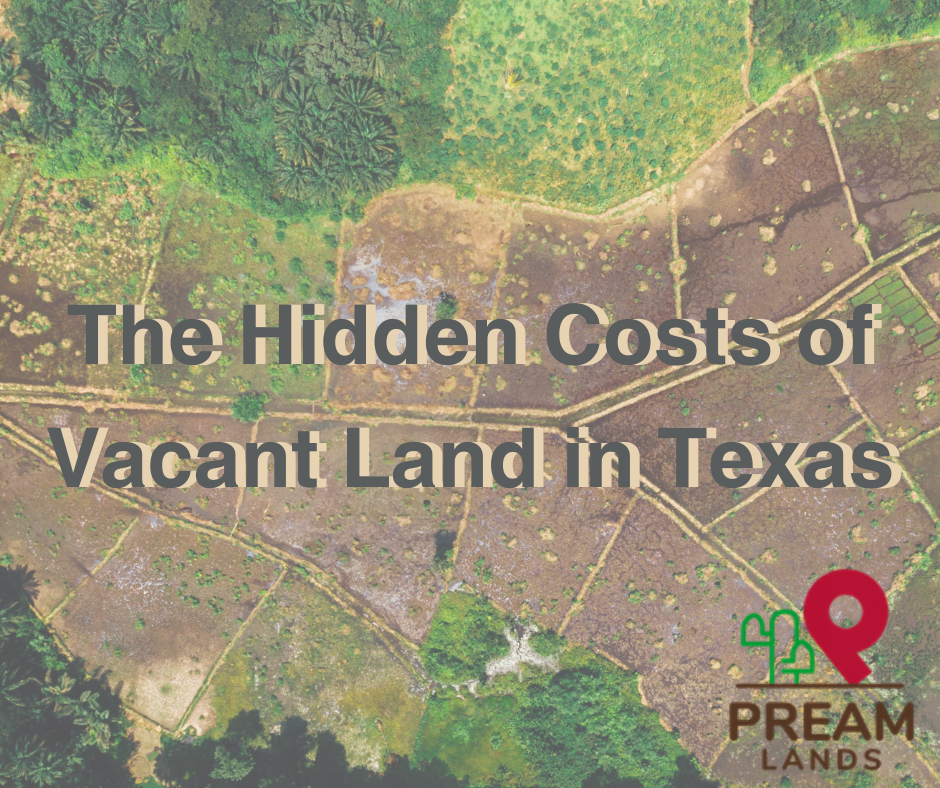
Vacant land often holds the allure of untapped potential, promising substantial returns for those who possess foresight and patience. However, the reality of owning vacant land in Texas is often far more complex, fraught with hidden costs that can significantly erode profitability. This article will delve into the intricacies of these costs, providing a comprehensive overview for potential land investors, with a specific focus on rural North and East Texas.
Understanding the Texas Landscape
Before delving into the financial implications, it’s essential to grasp the unique characteristics of the Texas land market. The state boasts a diverse topography, ranging from sprawling plains to rugged hill country. This diversity translates into a wide range of land values, regulations, and potential challenges. Moreover, Texas’s robust economy and population growth have significantly influenced land prices in recent years, creating both opportunities and risks for investors. Rural North and East Texas, characterized by its lush landscapes and agricultural suitability, present their own set of unique challenges and benefits.
The Tax Burden: More Than Meets the Eye
Property taxes in Texas are notoriously high, and vacant land is no exception. While the initial purchase price may be lower than a developed property, the ongoing tax burden can be substantial. Land valuation methods vary by county, but generally, properties are assessed based on their market value. This means that even if you’re not generating income from the land, you’ll still be required to pay taxes based on its potential use.
In North and East Texas, rural landowners might experience slightly lower property tax rates compared to urban areas, but the absence of income-generating activities can still make the tax burden heavy. Furthermore, Texas offers limited tax breaks for vacant land owners. Unlike residential properties, which may qualify for homestead exemptions, vacant land typically receives no such benefits. This can exacerbate the financial impact of property taxes over time.
Beyond Property Taxes: Additional Costs
While property taxes are the most obvious expense, they are far from the only financial consideration. Property owners’ associations (HOAs) are common in many Texas developments, and their fees can add significantly to the annual cost of ownership. These fees cover a range of services, from maintaining common areas to providing amenities like pools and golf courses.
Moreover, the potential for special assessments is a real threat. If a municipality decides to extend utilities or improve infrastructure in the area, property owners may be required to contribute to the cost. These assessments can be substantial and come with little to no guarantee of increased property value.
Cash Flow Challenges
Unlike rental properties that generate income, vacant land typically produces no cash flow. This means that all expenses, including property taxes, HOA fees, and potential maintenance costs, come directly out of the owner’s pocket. While there may be opportunities to generate income through creative land use, such as leasing for agricultural purposes or temporary storage, these options are often limited by zoning restrictions and market conditions.
Maintenance and Environmental Concerns
Owning vacant land in Texas can be equated to owning a low-maintenance pet – except that the costs can be much higher. Maintaining the appearance of the property is often a legal requirement, necessitating regular mowing, weed control, and trash removal. In rural areas, the risk of wildfires is a constant concern, requiring property owners to implement measures to reduce fire hazards.
Environmental issues can also pose significant challenges. Land contamination, whether from previous industrial use or natural causes, can be expensive to remediate. Additionally, invasive species can quickly overrun vacant land, requiring costly control efforts.
Market Fluctuations and Holding Costs
The Texas real estate market has experienced substantial growth in recent years, but this trend is not guaranteed to continue. Land values can fluctuate significantly based on economic conditions, population growth, and other factors. Holding vacant land during a market downturn can result in substantial financial losses.
Furthermore, the opportunity cost of holding vacant land must be considered. The money invested in land could be earning returns in other investment vehicles. Over time, the cumulative impact of these lost opportunities can be substantial.
Conclusion
While vacant land ownership can be a rewarding venture, it’s essential to approach it with a clear-eyed understanding of the potential costs. By carefully considering factors such as property taxes, HOA fees, maintenance expenses, and market conditions, investors can make informed decisions about whether and where to invest in vacant land.
Call to Action
Curious about the true cost of owning vacant land in rural North and East Texas? Contact us today for a free consultation or land valuation service. Let our experts guide you through the complexities of land investment to ensure you make the most informed decisions.
Relevant Statistics
- Average Property Tax Rates: Property tax rates in rural North and East Texas typically range from 1.5% to 2.5% of assessed value.
- Percentage of Land Owned by Individuals: Approximately 95% of land in Texas is privately owned, with a significant portion being rural land.
- Trends in Land Prices: Over the past decade, rural land prices in North and East Texas have appreciated at an average annual rate of 4-6%.
